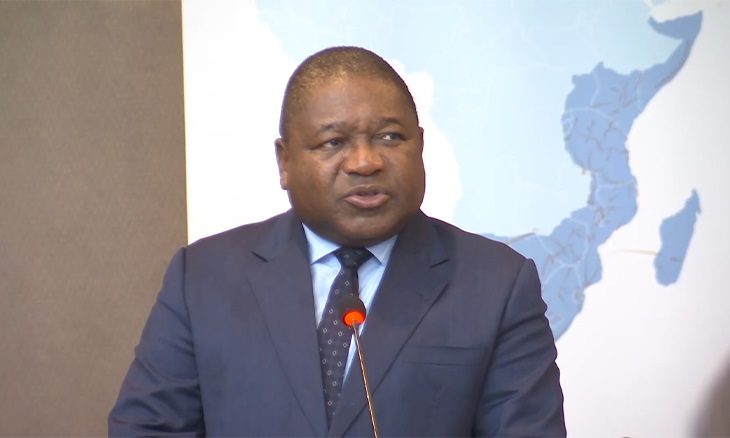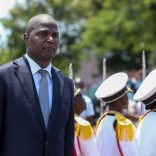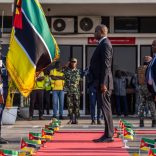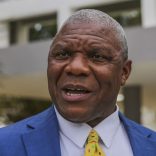Mozambique: President Chapo visits Eswatini
Mozambique: President wants regional cooperation, reform in fight against drugs

Photo: O País
The President of Mozambique, Filipe Nyusi, on Monday called for a discussion without “taboos” on the impact and fight against drug trafficking in eastern and southern African countries, advocating reforms and regional cooperation.
“There are people who become rich off the misery of others, and we have to do everything we can to stop this,” said Filipe Nyusi, at the opening in Maputo of the third high-level meeting of the Eastern and Southern African Commission on Drugs (ESACD).
“Let there be no taboo. Don’t be afraid to call a spade a spade. Because sometimes, when we fall behind schedule, we create space for things to happen in an unwanted way. We mustn’t lose sight of the fact that investing in preventing drug use is investing in the future of our young people and our nations,” he appealed.
The meeting, which brings together leaders and experts from the various countries in the region, Nyusi recalled, aims to discuss the reform of drug structures and policies, promote local capacities and mobilise political agents to tackle the problem, including “necessary reforms” in these states, which “must not work alone”.
“Over the last few decades, the East and Southern Africa region has been plagued by illicit drug trafficking, including cannabis. The effects of this phenomenon are already being felt in the socio-economic and security spheres, negatively affecting, among other things, the implementation of our states’ health, education and sustainable development policies,” Nyusi pointed out.
“Our regions are characterised by diverse and serious risks arising from this evil, coming from other geographies, making them established transit corridors and also destinations for large-scale intercontinental drug flows,” he added.
For the Mozambican head of state, preventing and combating drug trafficking “requires intersectoral and across-the-board coordination” on the part of the authorities “in the application of drug laws, as well as between them and society”, but it also requires “mechanisms” for countries to communicate with each other.
A crime which, he also recognised, is particularly potent for terrorism, such as the one Mozambique has been experiencing in the north of the country, in the province of Cabo Delgado, for the last six years.
“We see children who are led, instrumentalised, to have the courage to commit a crime that is not possible for a child, who do it under the influence of drugs,” Nyusi pointed out, recognising that drug trafficking is like “termites that erode the power and self-esteem of youth”.
More than 2.5 tonnes of cocaine, heroin and cannabis were seized in Mozambique in 2023, an increase on 2022, valued at €1.816 million, according to the public prosecutor’s report previously reported by Lusa.
“The profile of patients with mental and behavioural disorders due to the use of psychoactive substances in the country continues to be mostly made up of male patients aged between 21 and 30,” reads the report, sent to the Parliament.
The annual report by the Central Office for Preventing and Combating Drugs states that “there was a considerable increase in the number of arrests for international drug trafficking” in 2023 and that “traffickers have continued to seek to use the country to transit drugs to different parts of the world”.
In the context of the crime of drug consumption and trafficking, 923 people, 64 of them women, were arrested by the Mozambican police in 2023, figures that represent a slight reduction on the previous year, with 306 in pre-trial detention and 617 convicted.
According to the report, drug traffickers in Mozambique use the Afghanistan – Pakistan – Pemba – Zambézia – Maputo – South Africa routes for the international trafficking of methamphetamines, heroin and amphetamines. For cocaine, they use the São Paulo – Addis Ababa – Maputo – South Africa route.












Leave a Reply
Be the First to Comment!
You must be logged in to post a comment.
You must be logged in to post a comment.